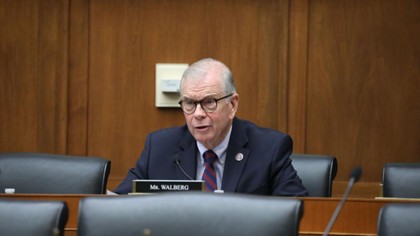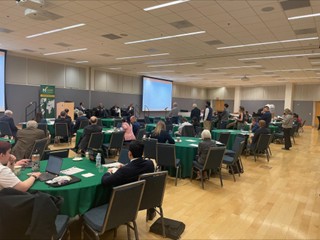The Color of Education: Where Are the Black Male Teachers?
There is a fundamental problem within public schools, and it is not just the decision to keep them open during the pandemic. It is a problem that has permeated since Brown v. Board of Education. While the landmark Supreme Court decision declared that “separate but equal” is unconstitutional in the educational system, it came at a cost. The Black students were able to integrate the schools, but the Black teachers were left behind. Author Malcolm Gladwell explains this in further detail in a past episode of his podcast Revisionist History.
It began a divide that has continued to this day. Earlier this week 2019 National Teacher of the Year Rodney Robinson hosted a virtual panel to discuss why Black male teachers are not being hired or retained in classrooms that are becoming increasingly diverse. Joining Mr. Robinson in the discussion was Virginia Secretary of Education Atif Qarni, Virginia Commonwealth University Dean of Education Andrew Daire, Dr. Maurice Carter of Longwood University, and Virginia State University’s Dean of Education Dr. Willis Walter, along with several other educators and students. He opened the panel by mentioning a quote from W.E.B. Dubois “The proper education of any people includes a systemic touch between teacher and pupil; knowledge on the part of the teacher, not simply of the individual taught, but of his surroundings and background, and the history of his class and group.”
According to studies conducted by Richmond Public Schools, there is 1 Black teacher for every 10 white teachers. The numbers are even more dire when taking a deeper look:
- Male Teachers of Color make up less than 5% of all educators.
- Black Male Teachers are 2%.
- Hispanic/LatinX Males are 2%.
- Asian/Native American Males are <1%.
- 51% of students in the United States are students of color while 79% of the educator work force is white.
“Students benefit from having a diverse teacher workforce,” stated Robinson. Among the benefits he mentioned were: an increase in grades, more representation in Honors/Advanced classes, decrease in student discipline as well as absenteeism, and parents become more involved in school activities. According to a study by University of North Carolina School of Education’s Dr. Constance Lindsay, 39% of minority students are less likely to drop out of in public schools and 19% are more likely to go to college when there is one Black teacher in elementary school. That number raises to 32% of students more likely to attend college when there are two Black teachers present.
Robinson then went on to address another problem: the recruitment of Black male teachers. He stated that among the biggest issues are financial/systemic barriers, along with the hiring practices and strict licensure requirements. Also noted was the fact that student debt impacts Black people more than anyone else. However, there was one issue that was discussed that is perhaps the biggest deterrent: Black men who were traumatized so much during their time in school that they do not want to go back.
“No one wants to return to the scene of their greatest pain,” said Robinson.
Among some of the other problems with not only hiring but retaining Black male teachers is something known as “The Invisible Tax.” Robinson described it as when teachers of color have to act as not only disciplinarians in the classroom but also cultural experts, while preparing students of color for racism in and out of school. That comes in addition to the usual lesson preparation that other teachers have to do. It creates a heavy burden that leads to burnout.
Walter discussed how implicit bias also plays a role in the hiring and retention of Black male teachers. “Implicit bias shows in teaching and cuts the legs out from students of color. We see that in why students don’t do well in elementary school, and then wonder why we stop seeing the same type of success as they get older. It has to stop.”
It is imperative that more Black male teachers are hired as a priority, especially in the current climate of the COVID-19 pandemic. “With the pandemic it really intensifies the issues within the teacher workforce and creates another barrier when we don’t hire Black male educators,” said Secretary Qarni. “Based on my experience, it can change the way learning is done in the classroom when you have a teacher of color.”
Daire brought up how there have been long term effects not only in the classroom but outside of it when Black male teachers are not involved. “We are more segregated now than we’ve been the past 30 or 40 years. Where are people developing relationships with people of different ethnicities? There is so much value for students and definitely students of color when they see a teacher that looks like them.”
There was one student who joined the panel and offered his perspective as well, and it spoke to the importance of what having a Black male teacher meant to him. “It was amazing the first time I saw a Black man as my teacher,” said high school student Corey Stuckey. “Teachers of color become role models for young men who want to become educators. We look for that first leader in our lives and we don’t see those who look like us in places we are at most of our childhoods.”
The Hunt Institute Javaid Siddiqi requested a call to action. “We need more white leaders who are willing to listen and act.”



